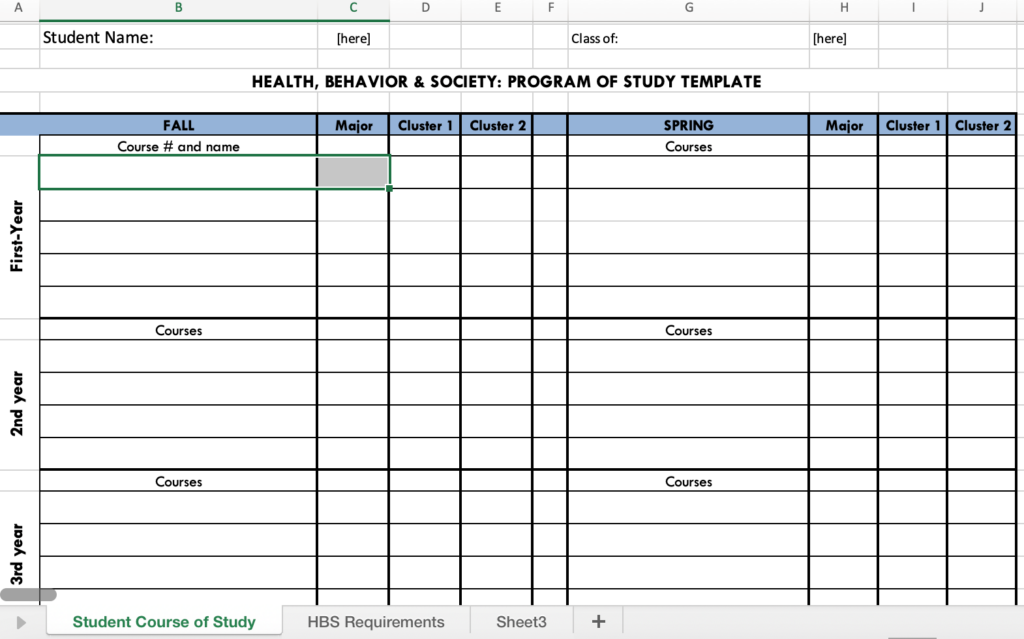“So, what’s your major?”
This question is perhaps the most universal casual conversation topic among college students. Peers, family, professors alike all seem to have the same curiosity. However, this question can evoke panic and stress in students who come in undecided and have no idea what they want to study. This was me four years ago. I thought that everyone started college knowing exactly what they wanted to pursue, and I spent endless time scrolling through the university’s website, analyzing each program, paralyzed by indecision.
Now that I am a graduating senior, I wish I had known that many students start college not knowing what they want to study, or they change majors, and this is all perfectly normal.
Coming out of high school, when one’s schedule is mostly predetermined and structured, it may seem stressful to come into college where everything is open-ended, especially at a school like the University of Rochester, where there is a great degree of academic freedom. So, here is my guide to the process of deciding your major, and my personal academic journey, from my first year to senior year.
What are some important, practical things to consider?
Before planning out courses, it is a good idea to familiarize yourself with the cluster system (click here to learn more). At the University of Rochester, the only required course is a freshman writing seminar called Writing 105. The cluster system ensures that all students take classes within humanities, social sciences, and natural sciences. This differs slightly for engineering students, so it is a good idea to check the website of whatever departments you might be interested in, especially if you are considering engineering.
Due to this type of flexibility, it is common for students to double major, double minor, or in some cases, even triple major.
So, where should I be freshman year? What should my course schedule look like?
If you are truly undecided, like I was, I recommend taking a variety of classes your first year, not just specifically topics you are comfortable and familiar with. I didn’t even know my major existed until I took an introductory public health class. I also took courses in English, linguistics, anthropology, psychology– I was all over the place.
I did make sure to take statistics my first year, because I knew that stats is a requirement for a lot of social science majors, so I knew most programs I was considering would require it eventually. If you have a vague idea of what type of majors you are interested in, it is a good idea to consider taking some of the prerequisites early on. This is especially crucial if you are considering specific paths, such as pre-med, that contain important requirements. You want to ensure that you get them all done without having to overload a large amount or take extremely taxing classes back to back. If this is you, I recommend you speak to advisors, or older students in similar programs, to make sure you are on the right path.
Other than that, prepare to possibly not get all the classes you want your first semester. Upperclassmen get priority in registration, and a lot of introductory lectures are very popular, so go into course registration with a list of back-ups that fit into your schedule, and know that you will definitely get into whatever courses you need eventually. It just might not happen your first semester. For me, some of my back-up classes I enrolled in ended up being my favorites.
What is it like to actually declare your major?
Your sophomore spring is when you actually begin the formal process of major declaration. You do not need to worry about this now, but in case you are curious, this is what the process looks like:
Many programs will encourage or require you to meet with an advisor before officially declaring. Your general academic advisor can put you into contact with specific department heads for your program. You will work together to put together a tentative plan for the rest of the courses you need to take. This plan is hypothetical– course offerings change, and you are not bound to the courses you choose during planning. Your advisors are really just looking to make sure you have researched your options and have some sort of plan in place.
If you are planning on more than one major, you will go through this process for each one. This is also where you can plan out your minor and/or cluster(s). Advisors will also be looking to make sure you satisfy the social sciences, natural sciences, and humanities requirements. Once you submit your major declaration forms, you will get an email a few days later letting you know that it was approved, and then it is official!
It is entirely possible to change your major or add a new major once you have declared– your future is not permanently decided by your sophomore spring!

What are my majors and how did I choose them?
I have always loved English classes growing up, so declaring a major within the English department was a no-brainer to me. I spent a lot of time on the department website comparing major tracks, and found that the Language, Media, Communication program seemed most applicable to my interests, and the electives offered seemed the most interesting. So, this was the first major I declared.
I knew that I was interested in double majoring, in order to encompass a more well-rounded span of classes, and I found a lot of social science electives fascinating. I eventually was deciding between Psychology and Public health. Psychology was something I was very familiar with, as I had taken AP Psych my senior year of high school, but I did not know what Public Health was until I signed up for Public Health 101 on a whim my first-year spring. I was fascinated by the topic and after taking more of the introductory classes, I was once again tasked with choosing a specific track within the program. I decided to go with the Health, Behavior, and Society major, as it was the most broad overview of the field.
Choosing my majors did not limit me from exploring other interests. The spring of my junior year, I realized I was only two psychology electives away from a minor, so I declared a psychology minor on the spot. I have also always been interested in music, and although a music major did not fit in with my other academic interests, I was still able to take multiple music electives, participate in Wind Symphony, and complete a natural science cluster in Music Cognition. As a student who never previously looked forward to taking natural science courses, it was awesome that I was able to complete that requirement focusing on one of my passions.
Overall, whether you have always known what you want to study, or you are coming into college with no idea what you want to do, you are in a good place. Try to stress as little as possible, and trust the process that you will end up where you need to be in time. You’ve got this.

